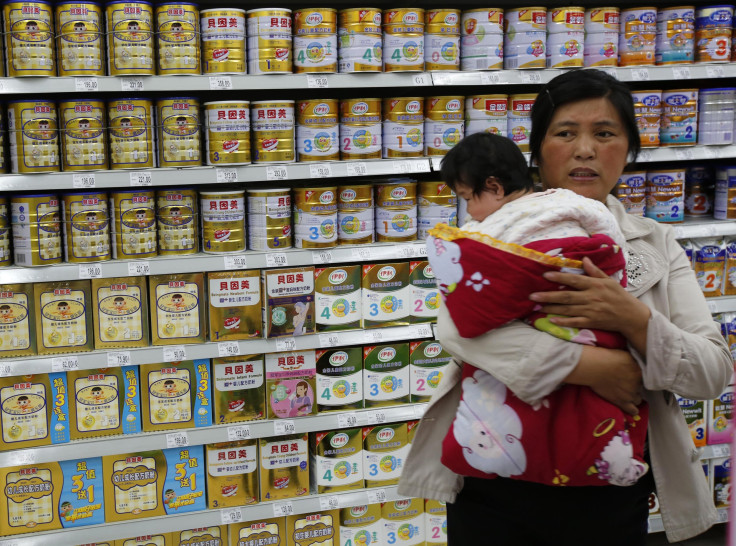China Two-Child Policy: Baby Food Makers' Gain Is Condom Makers' Loss

Shares of condom companies in China dropped last week while companies that sell infant formula, nappies and strollers received a boost, as the global investment community prepared to understand the long-term business implications of China’s decision to scrap its one-child policy.
The controversial family-planning program began in 1979 to curb a surging population at a time when extreme poverty was widespread in China. And analysts say the policy shift, which comes after more than 30 years of enforcing the one-child rule for urban residents -- could lead to between 3 and 8 million extra births a year in the country.
Shares of Japanese condom maker Okamoto Inc., whose condoms are extremely popular with Chinese tourists, tanked by 10 percent in Tokyo since the Chinese Communist Party’s ruling at its fifth Plenum meeting in Beijing Thursday. Shares of London-based Reckitt Benckiser Group Plc, the maker of Durex condoms, also fell.
On the other hand, shares in China Child Care Corp., which makes hair- and skin-care products for kids, ended the week 40 percent higher on the Hong Kong stock exchange. Formula makers in Hong Kong and mainland China also gained, led by Beingmate Baby & Child Food Co., which surged 10 percent on the Shenzhen stock exchange.
“It will definitely be good for us,” a babywear store manager in Shanghai told International Business Times, adding: “Just imagine -- people will need more nappies, more milk powder, more baby clothes.”
Shares of France-based infant-formula maker Danone rose 3 percent in Paris. The company along with Nestle SA is a big player in the $19 billion Chinese infant-formula industry where Japanese and European brands are seen as being safer and of better quality, according to reports. In New Zealand, which is China’s primary supplier of milk powder and other dairy products, the local dollar gained nearly a percent after the announcement.
And the real estate industry too is looking at long-term impact of the impending population boom. However, investor enthusiasm is yet to rub off on analysts, some of whom say that the economic effect will be limited in the short term, as according to recent polls, the high cost of living in Chinese cities, low incomes and wider worries of an impending economic slowdown have discouraged most middle-class households from having a second child.
“My feeling is that the impact of this change is going to take time,” Frank Chen, executive director of research for China at real estate company CBRE, told IBT.
© Copyright IBTimes 2024. All rights reserved.




















